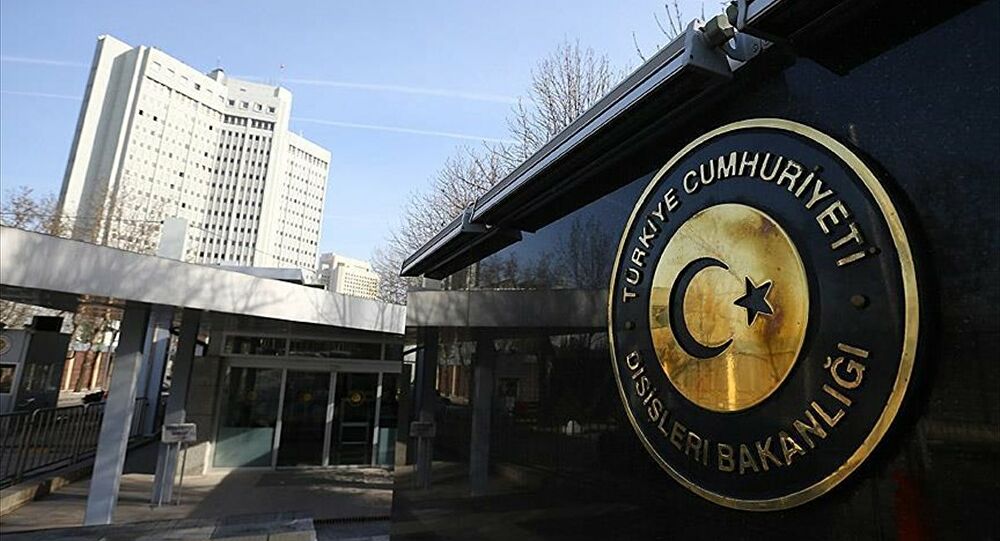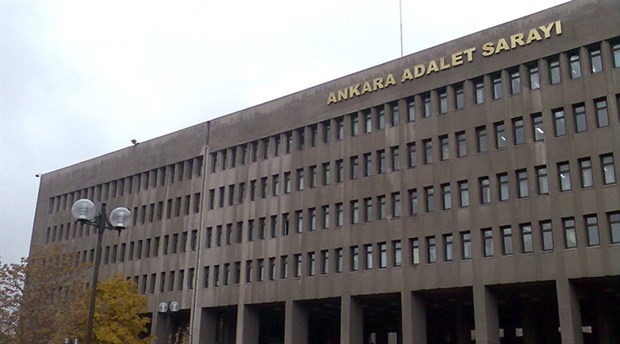Nordic Monitor
Judicial documents have confirmed that critics of President Recep Tayyip Erdoğan living in Finland became the subjects of a terrorism probe on fabricated charges conducted by a Turkish prosecutor.
The judicial documents indicate that the Turkish Embassy gathered information on Turkish and Finnish citizens believed to be affiliated with the Gülen/Hizmet movement, a group critical of President Erdoğan, and that Turkish educators, representatives of local associations and businessmen living in Finland had been profiled by Turkish diplomats.
The information that was reported to the foreign ministry in Ankara was later used in a criminal indictment for a charge of terrorism by Turkish prosecutor Adem Akıncı.
Nordic Monitor previously released an official Justice ministry communiqué dated February 7, 2017 showing how the Turkish government used its embassy in Finland to abuse Interpol mechanisms and harass exiled critics and political refugees living outside the country.
According to a December 20, 2018 decision by prosecutor Akıncı, the Ankara Chief Public Prosecutor’s Office launched a separate investigation (file no. 2018/ 43629) into 31 Turkish nationals in Finland who were listed in espionage files dispatched by Turkish diplomats in the country without any concrete evidence of wrongdoing.
They were charged with “membership in a terrorist group” by Akıncı. The investigation was based on intelligence files created at the Turkish Embassy in Helsinki between 2016 and 2018.
Judicial document dated December 20, 2018 reveals spying on critics in Finland by the Turkish Embassy. (The addresses and names of the Turkish nationals have been redacted for security reasons.):
Critics of the Erdoğan government abroad, especially members of the Hizmet/Gülen movement, have been facing surveillance, harassment, death threats and abduction since President Erdoğan decided to scapegoat the group for his own legal troubles. They have often been denied consular services such as power of attorney and birth registry as well as having their passports revoked. Their assets in Turkey are seized and their family members at home are at risk of criminal charges.
According to the justice ministry document, disclosed by Nordic Monitor in July 2019, a request by Turkey demanding the arrest and deportation of Turkish national Vecihi Koyuncu, a prominent businessman living in Finland, was rejected by the Finnish Interpol service.
Interpol’s diffusion mechanism, which refers to a notice sent by the Interpol section of the Turkish national police, was used against Koyuncu with a view to securing his deportation based on his lack of an international travel document.
Moreover, the document revealed that the request for the deportation of Koyuncu was reiterated by the Turkish Embassy in Helsinki. However, the Finnish Ministry of Foreign Affairs rejected the demand via a note verbale and conveyed the decision of the Finnish Interpol service.

Foreign Minister Mevlüt Çavuşoğlu confirmed systematic spying on Turkish government critics on foreign soil as by Turkish diplomatic missions in February, 2020. Çavuşoğlu said Turkish diplomats assigned to embassies and consulates have officially been instructed by the government to conduct such activities abroad. “If you look at the definition of a diplomat, it is clear. … Intelligence gathering is the duty of diplomats,” Çavuşoğlu told Turkish journalists on February 16, 2020 following the Munich Security Conference, adding, “Intelligence gathering and information collection are a fact.”
In the aftermath of a coup attempt in Turkey on July 15, 2016, some Western countries investigated the intelligence activities of Turkish Foreign Ministry personnel, representatives from relevant authorities, imams and intelligence officers accredited as diplomats.
In 2018 the Swiss attorney general launched a criminal inquiry into spying on Switzerland’s Turkish community by Turkish diplomats. The Swiss foreign ministry confirmed that the accusations outlined in the criminal proceedings were not diplomatic tasks and that therefore the people concerned could not avail themselves of immunity. Two of them had to leave Switzerland as a result of the investigation.
In December 2016 Turkey had to recall Yusuf Acar, the religious affairs attaché at the Turkish Embassy in The Hague, after Dutch authorities accused him of gathering intelligence on the movement. Similarly, Belgian authorities rejected the visa applications of 12 Turkish imams seeking to work in the country in 2017. The government of the central German state of Hessen ended its cooperation with the Turkish-Islamic Union for Religious Affairs (Diyanet İşleri Türk İslam Birliği, or DITIB).
In September 2016 Belgian police detected that the IP address from which threats were sent to Turkish journalists via social media belonged to Veysel Filiz, the then-press counsellor at the Turkish Embassy in Brussels. The Turkish government had to cut short Filiz’s assignment due to the political and diplomatic sensitivity of the investigation. Filiz was arrested last week on drug trafficking charges after police found 100 kilograms of heroin in his vehicle, Turkish media reported.
Austria is currently investigating espionage operations carried out by an Austrian national of Turkish origin who was spying on Turkish citizens and sending reports to security authorities in Ankara. Most recently, Feyyaz Ö., an Italian citizen of Turkish origin, confessed that he was ordered in August by Turkey’s National Intelligence Organization (MIT) to kill Kurdish-Austrian politician Berivan Aslan, a member of Austria’s Green Party. Aslan had previously revealed a network of Turkish intelligence agents in several Austrian provinces, including the capital, Vienna.

The recent judicial document once more confirmed that spying activities by Turkish diplomatic missions result in serious consequences in the Turkish judicial system.
As previously disclosed by Nordic Monitor, the foreign ministry sent lists of profiled Turkish nationals in two CDs to the Ankara Chief Public Prosecutor’s Office, the national police and Turkey’s intelligence agency MIT on February 19, 2018 via an official document for further administrative or legal action, the punishment of their relatives back in Turkey and the seizure of their assets.
Public prosecutor Akıncı, who received the foreign ministry document on February 23, 2018, forwarded the classified CDs including information on 4,386 Erdoğan critics to the Organized Crimes Unit of the Ankara Police Department for further action. The police conveyed the results of its investigations to the public prosecutor.
According to judicial documents released by the Ankara 4th High Criminal Court on January 16, 2019, the foreign ministry compiled a long list of foreign entities that were owned and/or operated by people who were seen as close to the movement.
Moreover, Nordic Monitor revealed how MIT infiltrated refugee camps in Greece in order to spy on opponents who were forced to flee to Greece to escape an unprecedented crackdown in neighboring Turkey.












